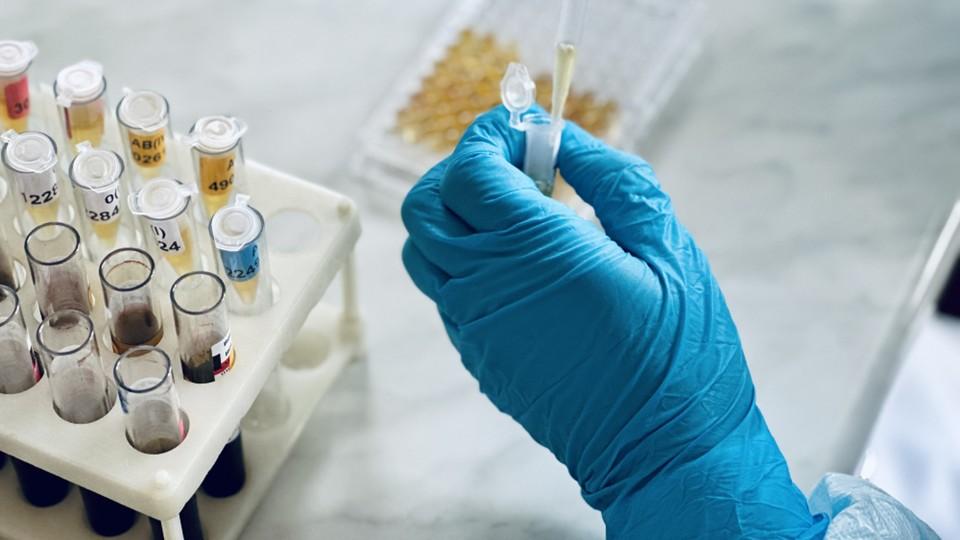WHO announces international hub for mRNA vaccine training

The World Health Organization (WHO) announced the opening of a global biomanufacturing hub located in South Korea to provide training to low- and middle-income countries seeking to produce vaccines and other biologics, such as insulin and monoclonal antibodies.
Vaccines are a powerful tool and crucial part of fighting diseases, such as tetanus, measles, meningitis, and, recently, COVID-19. However, the pandemic has highlighted the vast inequities in global access to these life-saving tools.
In the case of COVID-19, Our World Data notes 73% of people in high-income countries have received an initial COVID-19 vaccine dose, while only 6.9% of individuals in low-income countries have received their first dose.
Last week, at a press conference, Dr Tedros Adhanom Ghebreyesus, WHO’s director general, announced the new hub, stating, “much of this inequity has been driven by the fact that globally vaccine production is concentrated in a few mostly high-income countries.”
“One of the most obvious lessons of the pandemic, therefore, is the urgent need to increase local production of vaccines, especially in low- and middle-income countries.”
The global training hub
To begin to satiate this need, in June of last year, the WHO announced the establishment of the United Nations (UN) mRNA technology transfer hub in South Africa.
The South African hub aims to provide a facility where manufacturers from low- and middle-income countries receive training in producing certain vaccines and the licenses to do so.
Recently, researchers at Afrigen Biologics and Vaccines in Cape Town, working with the WHO’s technology-transfer hub, announced that they produced their own mRNA vaccine candidate. Having a manufacturing hub is an integral part of vaccine distribution but having a skilled and trained workforce is equally vital to ensuring the production of effective vaccines.
“Currently, biomanufacturing training facilities are located mainly in high-income countries and operate on a fee-based system, putting them out of reach for many lower-income countries,” Dr Ghebreyesus said.
Thanks to the offering by the Government of the Republic of Korea, the new international training hub will help to remediate the inequities within the global healthcare system. South Korea will expand its operations at a large facility in its region that conducts biomanufacturing training locally to accommodate trainees from other countries.
The WHO Academy will support the training efforts by helping to develop a comprehensive curriculum regarding biomanufacturing.
The first two countries to join the mRNA technology transfer hub, Argentina and Brazil, are already receiving training.
At last week’s conference, the WHO revealed five additional countries that will be able to strengthen their own vaccine training and biologics manufacturing capabilities – Bangladesh, Indonesia, Pakistan, Serbia, and Vietnam – bringing the total number of countries to 13.
Long-term progress
Representatives from each of the five countries joined the conference, as did Kwon Deok-chul, the minister of health of the Republic of Korea, where the hub will be located. Each had a common message – work together to enhance healthcare access for everyone, everywhere.
Deok-chul said that Korea would strive to support all in strengthening their capabilities to manufacture vaccines. The coronavirus pandemic demands nations to collaborate and stand in solidarity to overcome this global public health crisis.
The pandemic brought to light the vast inequities of healthcare access globally, not just with vaccine distribution but with health products in general. Manufacturing of many healthcare products is concentrated in certain regions of the world, primarily higher-income areas.
When COVID hit countries hard near the beginning of the pandemic, places without manufacturing capabilities had to wait for constituents with these capabilities to supply their populations before receiving spare products. When these inequities became evident to the WHO, it called for countries to share their technology through voluntary licensing or multilateral mechanisms, such as Medicines Patent Pool.
Technology sharing has happened with some drugs, but the WHO says significant intellectual property (IP) sharing has not yet happened with the vaccines, except for a couple of companies.
Though major mRNA producers, like Pfizer and Moderna, have not approved any technology transfer, Soumya Swaminathan, the WHO's chief scientist, says the WHO has not abandoned the possibility of working with these companies.
Swaminathan says the WHO would welcome a partnership with them because developing a vaccine based on a newer construct from scratch does take time. While South Africa has developed an mRNA vaccine construct based on publicly available information, this is a new construct and must go through the entire clinical development program.vThese time requirements mean the South African vaccine will not fully be available before the end of 2023 or likely 2024.
"This timeline can obviously be shortened considerably if a known technology or known vaccine with proven efficacy and safety were to transfer their know-how, tech, and technical assistance to the hub, which means it's just a question of producing that vaccine at quality standards," Swaminathan states.
If the current patent holders for mRNA shared their formula or waived their IP rights, which is currently being negotiated through the World Trade Organization (WTO), manufacturing and distribution in low- and middle-income countries would increase.
"We hope we will get something out of the negotiation with the pharma industry or through the WTO process. This pandemic is unprecedented, and whatever provisions we had for an emergency like this one, like the IP waiver, if we cannot use them now, when would we use them?" said Dr Ghebreyesus.
The technology hub and the process of empowering and building capacity in places worldwide will enable more work on vaccines of other public health importance and serve as a backup plan for the next pandemic.
"If there is another pandemic with another pathogen, there will be manufacturing sites capable of absorbing and quickly scaling up mRNA. So, if one lab in the world were to develop a vaccine for that new pathogen, then within a few weeks or months, we could have the capacity, we could have manufacturing scaling up very rapidly," Swaminathan said.
"That really is the goal with which we approached this – not necessarily to solve the problem of today, which needs to be solved, but by equitable sharing of vaccines and making sure that we address some of the absorption constraints, the delivery constraints that countries are facing."
About the author
Jessica Hagen is a freelance life sciences and health writer and project manager who has worked with VR health companies, fiction/nonfiction authors, nonprofit and for-profit organisations, and government entities.













